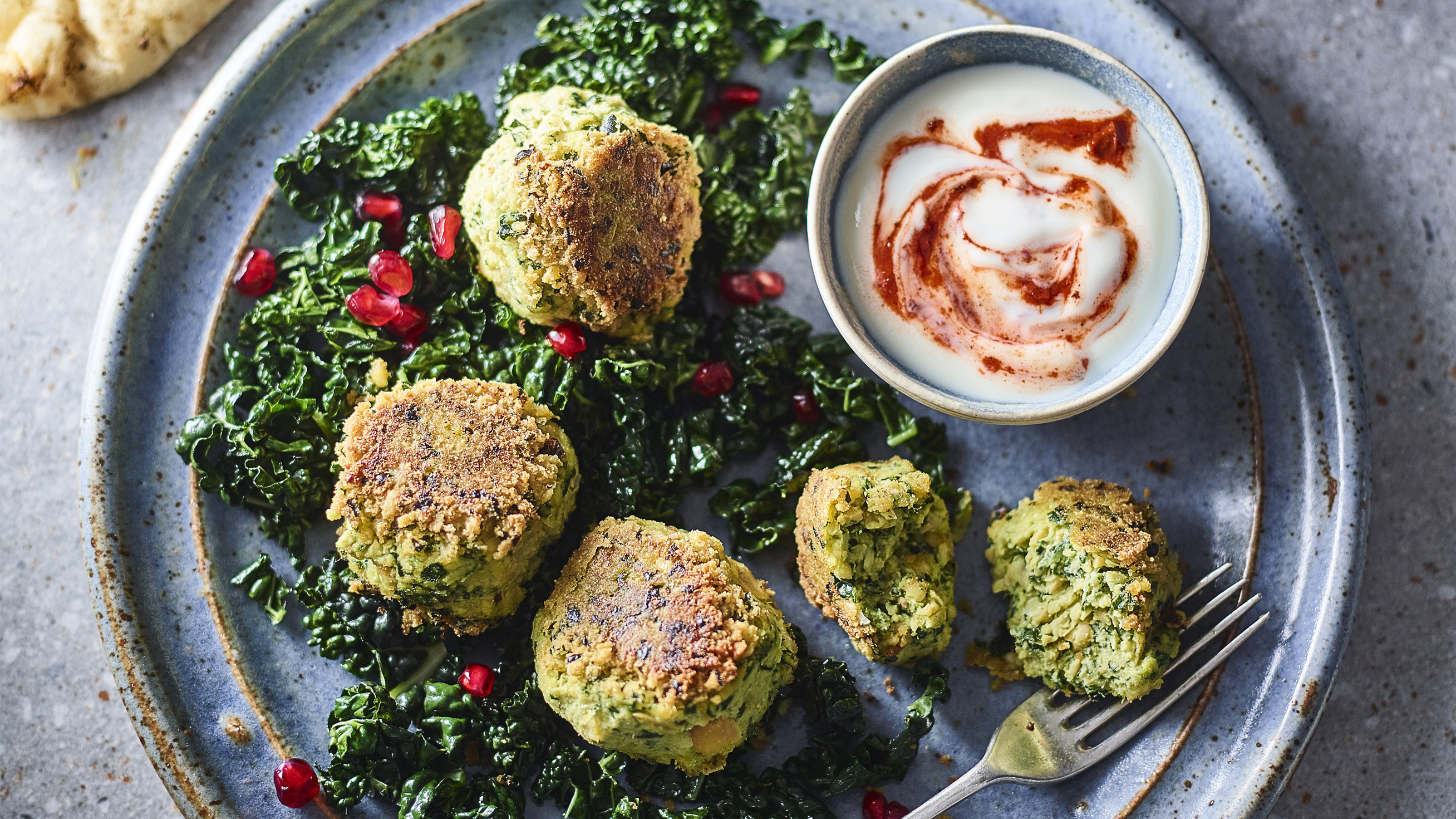
Veganuary is the perfect time for the vegan-curious to give the lifestyle a try, but it can be difficult to know where to start. In a cost-of-living crisis, nutrient-dense and filling recipes that use low-cost ingredients, are a must for your health and bank balance.
Discover Great Veg, a grower-backed campaign, has taken some of the guesswork out of Veganuary with recipes inspired by flavors from across the world. We like this falafel recipe for its affordability per head and inclusion of cavolo nero, a green leafy vegetable that’s rich in iron, fiber and vitamin C. It’s a brassica that’s very similar to kale (you can swap the cavolo nero for kale if you have some handy).
The Moroccan-inspired recipe only takes 20 minutes to make from prep to plate and serves two people.
Cavolo nero falafels with harissa yogurt sauce
Prep time: 10 minutes
Cook time: 10 minutes
Serves: 2
Ingredients
- One can of chickpeas, drained and rinsed
- 7oz / 200g pack cavolo nero, thick stalks removed
- 1 tbsp tahini
- 1 clove garlic
- ½ tsp ground cumin
- ½ tsp ground coriander
- 2 tbsp vegetable oil
- Half a cup of plant-based yogurt alternative
- 1 tsp harissa paste
Method
- Place the chickpeas, tahini, garlic and spices in a food processor, along with the leaves from two stems of cavolo nero (or kale), roughly chopped. Blend to a coarse paste and season well with salt and pepper.
- Divide into eight and roll into balls.
- Heat the oil in a pan and fry the falafel balls for two to three minutes until golden, turning once halfway through.
- Remove from the pan and add the remaining cavolo nero, shredded, and fry for two to three minutes.
- Meanwhile, mix together the yogurt and harissa.
- Serve the falafels on the shredded cavolo nero and drizzle with the harissa yogurt.
Nutrient breakdown
Per portion, this meal will provide you with approximately 40g of carbs, 20g of protein and 28g of fat.
Benefits of a vegan diet
We previously spoke to Dr Kevin Barrett, a UK-based GP at New Road Surgery, about the benefits of a plant-based diet.
"Increasing the variety of plant-based foods in our diets is the best way to improve the variety of the gut microbiome," he said. A wider variety in your gut microbiome can improve your gut health, mental health and even help you to sleep better.
"A plant-based diet has been associated with some of the lowest rates of chronic illness, improved quality and quantity of life," added Dr Shireen Kassam, an oncologist and the co-author of Eating Plant-Based. "Specific advantages include healthier body weight, lower risk of high blood pressure, high cholesterol, heart disease, stroke, dementia, type 2 diabetes and certain cancers," she said.







